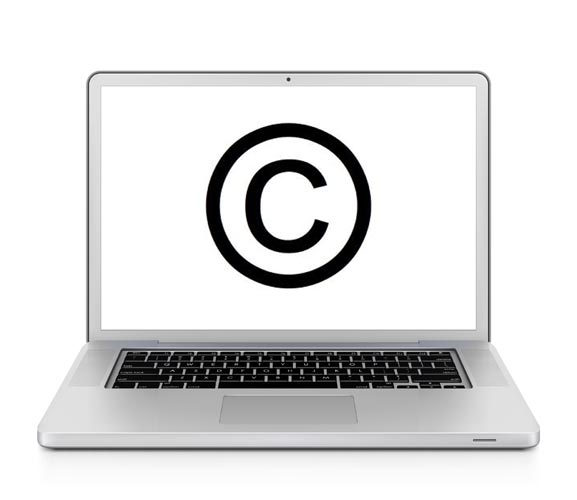Copyright in the digital era: How can law firms thrive without infringement?
Published by Gbaf News
Posted on June 14, 2012
6 min readLast updated: January 22, 2026

Published by Gbaf News
Posted on June 14, 2012
6 min readLast updated: January 22, 2026

In this digital era, law firms rely on the sharing of information more than ever. Your employees are busy and they need to access and share content quickly and efficiently. However, simply by forwarding an article, your employees could be putting your firm at risk of copyright infringement, resulting in court cases or settlements potentially worth millions of pounds.
Why is copyright law important?
Copyright is legal right of ownership that means that the creators of a written, artistic or published work can control how it is used. This includes books, journals and law reports and digital publications such as e-books, e-journals and websites. Unless intended for a personal or non-commercial purpose, employees need to obtain permission from the copyright owner to copy or reproduce from any of these works.
In the context of the modern workplace, this means employees need to obtain permission every time they make photocopies for a meeting, print out copies for handouts, post an article to your intranet, paste it into a presentation or email a scanned review. This is time-consuming and inconvenient. It can also be costly and very difficult to budget. But failure to comply with copyright obligations can expose your organisation to the risk of legal action.
Compliance in the workplace
So, how do firms educate their employees on compliance in the workplace? To begin with, firms must accept the risks of copyright infringement. Employers must recognise that unlawful use of copyright material can result in damages being awarded and an injunction granted against further use. This can also have an adverse effect on your firm’s reputation which could even affect sales revenue and ultimately, share value.
A difficulty in enforcing compliance in the workplace is that employees’ often have a perception that obtaining copyright permissions is a difficult and lengthy process that gets in the way of their day-to-day responsibilities. Certainly, acquiring rights individually is a lengthy process, with no guarantee that permission will be granted.
Under UK copyright law, the employer has vicarious liability if any of their employees infringe copyright. As the employee is not liable, it is important that the employer takes the necessary steps to ensure their employees are aware of what they can and cannot copy, share and circulate with their colleagues. Yet, even with these steps in place, the employer is still exposed to copyright infringement, as it only takes a single inadvertent breach by an employee to risk legal action against a firm.
CLA Law Licence
A new digital copyright licence from The Copyright Licensing Agency (CLA) can provide a solution. With a single blanket licence from CLA, firms can copy and reproduce from millions of books, journals, law reports, without fear of infringement. The CLA Law Licence – enhanced in April to include digital publications – also provides law firms with the permission to copy from thousands of e-books, online journals and websites.
In developing the new Licence, The Copyright Licensing Agency (CLA) carried out extensive research with legal professionals to identify the copying and re-use permissions that would most benefit their firms: allowing their employees to focus on their day-to-day responsibilities, while still respecting the intellectual property rights of others. As a proliferation of content becomes available through websites and digital subscriptions, the Licence has been developed to ensure that firms are protected from the risk of copyright infringement by their employees in the form of copying, scanning, storage or distribution of content. Without a CLA licence – or other statutory authority – even inadvertent infringement could lead to damaging legal action.
Features and Benefits
The CLA Law Licence gives permission for a wide range of everyday uses of published material which would otherwise put your firm at risk of copyright infringement, including:
The CLA Law Licence has been specifically tailored to the needs of law professionals, and includes a set of law-specific external supply permissions which have been developed in consultation with the Law Society and City of London Law Society. These include the supply of copies to:
CLA’s law specialist, Paul Maillardet says, ‘By working in consultation with the Law Society and City of London Law Society, we have been able to develop a licence that meets the needs of law professionals in the digital era; enabling them copy, share and circulate the latest up-to-date information with colleagues, without disrupting the workflow of their firms.’
The Copyright Licensing Agency
The CLA were founded in 1983 and have nearly 30 years experience in licensing organisations to copy and reproduce from copyright publications. CLA are a non-profit organisation and work on behalf of the copyright owners – authors, artists and publishers – to ensure they receive a fair reward.
To make compliance in the workplace simpler, CLA are also working on a number of other solutions, including an online title search tool for licensees. Instead of having to check CLA’s list of excluded works, licensees will now be able to check whether a publication is included in a licence by using a title search on CLA’s website . The CLA also have a dedicated compliance arm. Copywatch works to prevent unlawful copying in the workplace by promoting compliance and best practice and investigating reported incidents of copyright infringement.
For further information on the new CLA Law Licence, visit www.cla.co.uk or contact Paul Maillardet: Paul.Maillardet@cla.co.uk or 020 7400 3148.
Explore more articles in the Business category











